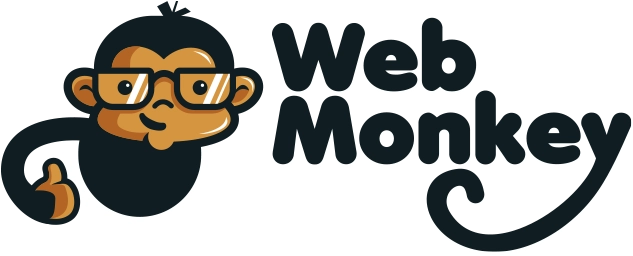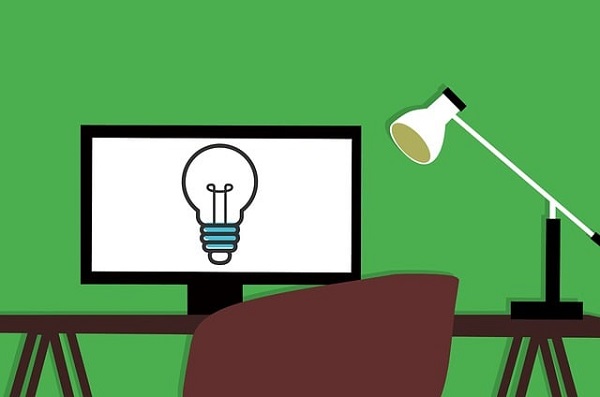How To Become A Full-Time Blogger – My Top 10 Tips For Success
So, you want to become a full-time blogger and are wondering if it's even possible and how to get started.
This was the exact position I was in back in 2018. I had heard that people were making amazing incomes through blogging, but it sounded like an impossible feat to make your entire income from a website, let alone a simple blog.
Fast forward to the present, and WebMonkey has been my full-time income since 2022. In fact, blogging has let me significantly increase my net worth, meet incredible people, and live and work remotely from six different continents over the last few years.
So, if you're wondering how to take your blog full-time, this is the post for you. I'm covering all of the lessons and tips I've learned over the years that have helped me scale WebMonkey into a full-time income and business.
How To Become A Full-Time Blogger
My blog made $272,000 in 2022. But it took 5+ years to reach this milestone and to go completely full-time, so blogging certainly isn't quick money.
If I had to give any other blogger advice on how they can scale their blog and create a full-time income, here's exactly what I'd tell them.
1. Pick A Niche You're Knowledgeable In
A blog niche is the topic or topics you cover on your blog. And one of the most important steps in launching a successful blog is to pick a niche you're knowledgeable in.
The main reason for this is to ensure your content provides real value to people. After all, you wouldn't want to read a health or finance blog from someone who didn't know a thing about either topic!
Having expertise and knowledge about your niche can also make search engines happy, so they'll rank your content. In fact, expertise and authority are a major ranking factor for Google, which I'll cover just below this point.
The bottom line is picking a niche you enjoy and understand is a key component for success. Some popular blogging niches you can consider include:
- Art and DIY
- Entertainment
- Food
- Finance
- Niche hobbies
- Parenting
- Tech
- Travel
2. Learn SEO
SEO, or search engine optimization, involves creating content and improving a website so that it appears more regularly on search engines.
For bloggers, a large chunk of SEO means writing compelling content about specific topics, or keywords, that you want to show up for on Google when people search for that topic.
This is one of the main ways a lot of bloggers build up an audience, myself included. In fact, organic SEO traffic from search engines is how WebMonkey receives hundreds of thousands of visitors per month.
I love SEO because the traffic you build with it can turn into a nice passive income stream; you don't have to constantly promote your blog on social media to get views. However, SEO is an ever-changing field with a lot of moving parts. And this can be overwhelming for new bloggers.
My advice is to read some basic blogging SEO guides from industry experts like Niel Patel and Moz. Get a basic understanding of what SEO is and how to write blog posts with it in mind, and continue to learn about this digital marketing skill as you continue blogging.
3. Stick With WordPress
WordPress is the content management system (CMS) that I host WebMonkey on. It's also the platform that powers two out of every five websites on the internet!
Pretty much every full-time blogger I know also uses WordPress. This is largely because it's open-source, so it's highly customizable and can suit a range of needs. It also has an extensive library of plugins that people have made to help with specific website functions.
My advice is to also use WordPress for your blog. As for choosing a website hosting company (this is the company that actually stores all your website files and makes things run), I suggest using SiteGround if you're just starting out.
SiteGround is the hosting company I used to scale WebMonkey to over 50,000 monthly readers before I moved to BigScoots. And it costs less than $10 a month when you get started.
You can use other hosts like Bluehost or GoDaddy, but I like these hosts less. Just stick with WordPress whatever you do and don't go with a more limited CMS like Wix or SquareSpace.
4. Monetize Your Traffic
It can take months or even years to build up enough blogging traffic to create a full-time income. But this doesn't mean you can't still make money with your blog as you build your business.
In fact, I started making money with WebMonkey just a few months in. Granted, it wasn't much, but it was proof of concept to me that you can earn money online with nothing but a website and some content.
Personally, I started monetizing with Google Adsense, which are the ads you see around many websites on the internet. I also started some basic affiliate marketing through Amazon and various affiliate marketing networks.
My strategy hasn't changed much since 2018. I now run display advertisements with Mediavine and still do affiliate marketing. And both of these channels make $50,000 a month or more some months, which is the main reason I haven't stopped!

A blog requires traffic to make a full-time income. But even a small niche site can make grocery money or a meaningful side income if you slap on some advertisements and learn the basics of affiliate marketing.
5. Network With Other Bloggers
Chatting with other bloggers in my niche, which is personal finance, is one of the main ways I grew my blog.
I suggest you do the same and network with a few other blogs you follow and look up to. Twitter and blogging Facebook groups are a great place to do this, and you'd be amazed at how helpful people are if you help them in return and get to know them.
For example, I've been chatting with my friend Peter from Dollar Sanity since I started blogging in 2018. We still chat every week, more or less, to this day, sharing SEO tips and blogging lessons with one another. And I do the same thing with a handful of other bloggers.
6. Keep Social Media Simple
When trying to grow a blog, a lot of people dive into every social media platform under the sun.
This works for some people, but it was one of the main blogging mistakes I made for the first few years. I was trying to blog consistently while also posting to Instagram, Pinterest, Facebook, and even Reddit.
The issue is that when you try to do everything, you usually end up doing everything a bit poorly. So, my advice is to focus on content creation and to pick just one channel that you really focus on.
Personally, this is YouTube for me, and my channel for WebMonkey is now over 26,000 subscribers and is its own side hustle now.
7. Start Collecting Emails
An email list is a blogger's best friend.
This is the advice I heard for years, but I never really did anything about it. But let me tell you; email marketing is awesome.
When you build an email list for your blog, the list is yours. You can email it with relevant content and get consistent traffic, and you don't need to worry about social media trends or algorithm updates on Google.
Personally, I use MailerLite for my blog. And I collect emails with a side hustle eBook and some opt-in boxes on the blog. This is all you need to start out, and trust me, it's worth doing once you have some steady blog traffic.
8. Write Consistently
One of the main changes that helped me become a full-time blogger was to start publishing a lot more content each week.
Everything kind of clicked for me at the end of my third year of blogging. WebMonkey was making $1,000 a month or more, and I realized the money making machine was working, it just needed more fuel.
This is the case with a lot of blogs. They have excellent content and are building an audience, they're just not moving fast enough.
Personally, I dedicated time every morning and evening before and after my day job to write. This let me publish about three blog posts per week instead of one, and I also worked a bit on weekends when I had time.
This was a lot of work, but it's the truth, at least for me. Without this 3X in content production, I don't think I would have taken WebMonkey full-time.
9. Outsource Smartly
I'm not very knowledgeable in website design or web security. So, I've outsourced these sorts of tasks to talented freelancers instead of wasting time doing it myself and probably getting a lot wrong in the process. I also outsource some writing now to various freelance writers I know.
This is another reason networking with bloggers is a great idea; you can get referrals for the right people to work with to help you grow your blogging business.
10. Don't Quit Your Day Job Too Soon
When I was 24, I quit my office job and moved to Medellin, Colombia to focus on my freelance writing career and growing my blog.
I was just a recent college graduate trying to make money with my laptop while traveling the world. At the time, Colombia made a lot of sense due to the low cost of living and growing digital nomad community there.

I had a decent amount of savings in my bank account. But, more importantly, I had enough freelance writing income coming in that I wasn't dipping into savings.
This was a massive stress relief. So my advice to people who want to blog full-time is to do something similar. Don't quit your day job too soon, and make sure you have at least 6 months of savings in the bank and some other income streams if you decide to jump ship and go all-in on blogging.
Pro Tip: Check out my Freelance Writing For Freedom eBook to learn how I went from $0 to $100,000+ in freelance writing income, all while traveling the world.
How Long Does It Take To Become A Full-Time Blogger?
In my experience, it took about four years to make a full-time income as a blogger. Some people make a full-time income much faster, and it largely depends on which country you live in and the average cost of living.
For example, a blog making $5,000 a month can support entire families in most countries on earth; if you live in San Francisco, it's a different story.
Consider how much you need to live comfortably each month and do the math. And always consider the potential of your blogging income dropping dramatically for some reason and what you would do if that happens.
How Much Can Bloggers Make?
A blog is just a web publishing business, and the earning potential is truly unlimited. After all, there are media companies and websites out there making hundreds of millions of dollars per year.
However, making money with a blog takes a lot of time for most people. For example, I made $1,700 in my first year, but six years later, and WebMonkey is on track to clear $500,000 this year.
Ultimately, a blog is what you make of it. It's my favorite digital side hustle, and I love working on my blog every day. Just know that it's not fast or guaranteed income and that it takes some serious work.
Final Thoughts
I hope my story highlights how it's possible to make a living blogging if you take a disciplined and structured approach.
I'll wrap up this story by saying that the digital landscape changes all the time. The core advice I've just given still holds true, but it's a nuanced game, if anything.
Ultimately, consistently doing most things right leads to long-term success in my mind. And even if it takes months or years to turn your blog into a full-time income stream, the skills you develop along the way are worth it.
Best of luck!
Want more money-making ideas? Checkout:
- How To Make Money Writing On Medium.
- How To Earn Passive Income For Young Adults.
- How To Make 10K A Month.






